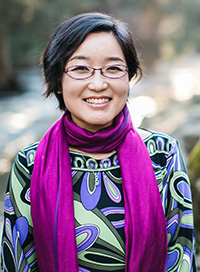CSU RESEARCH:
- CSU study revealed that close, less-conflicted relationships between children and teachers are important for language and literacy development.
- Study provides guidance on when and where difficult relationships can arise across first six years of schooling and how to navigate them.
 A Charles Sturt University (CSU) study has shown that close, less-conflicted relationships with teachers may provide a supportive context for later language and literacy development and other aspects of children’s social-emotional adjustment at school.
A Charles Sturt University (CSU) study has shown that close, less-conflicted relationships with teachers may provide a supportive context for later language and literacy development and other aspects of children’s social-emotional adjustment at school.
The research article, ‘Can teacher-child relationships support human rights to freedom of opinion and expression, education, and participation?’, appears in the special issue of the International Journal of Speech-Language Pathology (February 2018).
Lead researcher Dr Cen Audrey Wang (pictured left) from the Charles Sturt University (CSU) School of Teacher Education in Bathurst, said, “The ability to communicate is crucial in ensuring children’s full participation in life activities and being able to express views and opinions and actively participate in public debate.
“This study provides evidence that teachers may help support these skills, and provides guidance on when and where difficult relationships can arise across the first six years of school."
Dr Wang said children whose initial relationships with teachers were characterised by low closeness or moderate to high conflict were at greater risk of forming less positive teacher–child relationship trajectories, but the children who experienced increasing levels of conflict with subsequent teachers were most at risk.
“Efforts to improve teacher–child relationships with children with speech and language difficulties, or whose parents are concerned about their communication, need to start early,” she said. “But relationship quality also needs continual monitoring as these children move into the middle years of childhood.
“Teachers, speech-language pathologists, and parents need to be aware of the potential challenges that children with SLC may have in forming positive relationships with teachers, and together provide support for children’s speech and language skills, social relations and self-regulation.”
Dr Wang said professional development programs designed to improve teachers’ relationships with children are proving effective, but the extent to which such programs are effective for children with speech and language difficulties is yet to be determined.
“Previous research suggests that speech and language difficulties may reduce children’s capacity to understand their emotional experiences, express their needs effectively, and regulate their behaviours; such a reduced capacity has negative implications for social relationships,” she said.
“A first step towards the goal of helping teachers and children form more adaptive relationships, especially for children with SLC, is for teachers to be cognisant of their role in supporting children with whom they may find it harder to relate due to difficulties in communication.
“These endeavours will support children’s rights to freedom of opinion and expression, education, and participation that are enshrined in Article 19, 26 and 27 of the Universal Declaration of Human Rights.”
The study:
- explored how teacher–child relationships change over the early school years, in terms of closeness and conflict;
- examined whether these trajectories differ in type and frequency for children with typical development and children with speech and language concern (SLC);
- considered whether the trajectories are associated with school outcomes at 12–13 years;
- highlights the role of teachers in supporting children in their development of communication and academic skills; and
- calls for efforts to help teachers and children form more adaptive relationships, especially for children with SLC.





Social
Explore the world of social